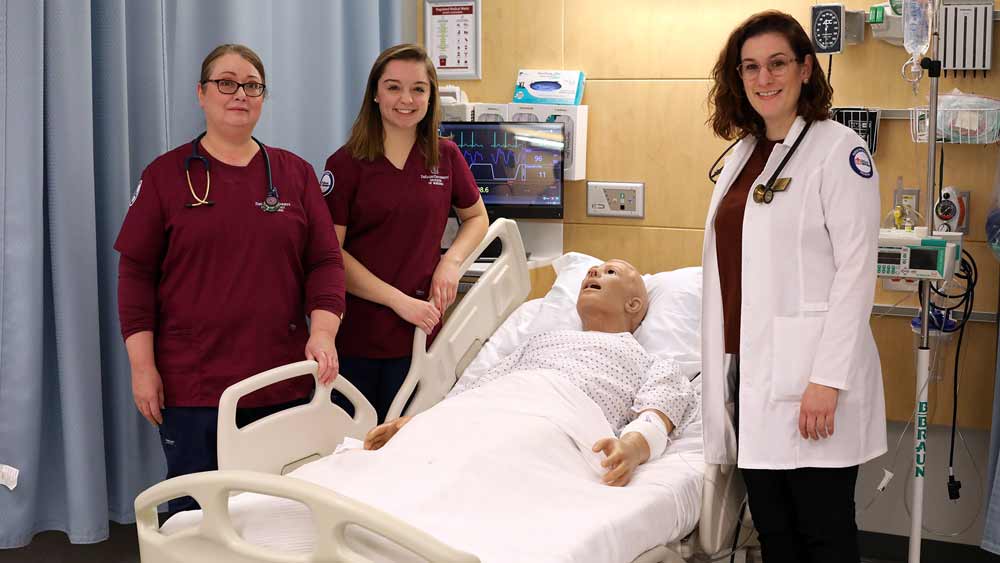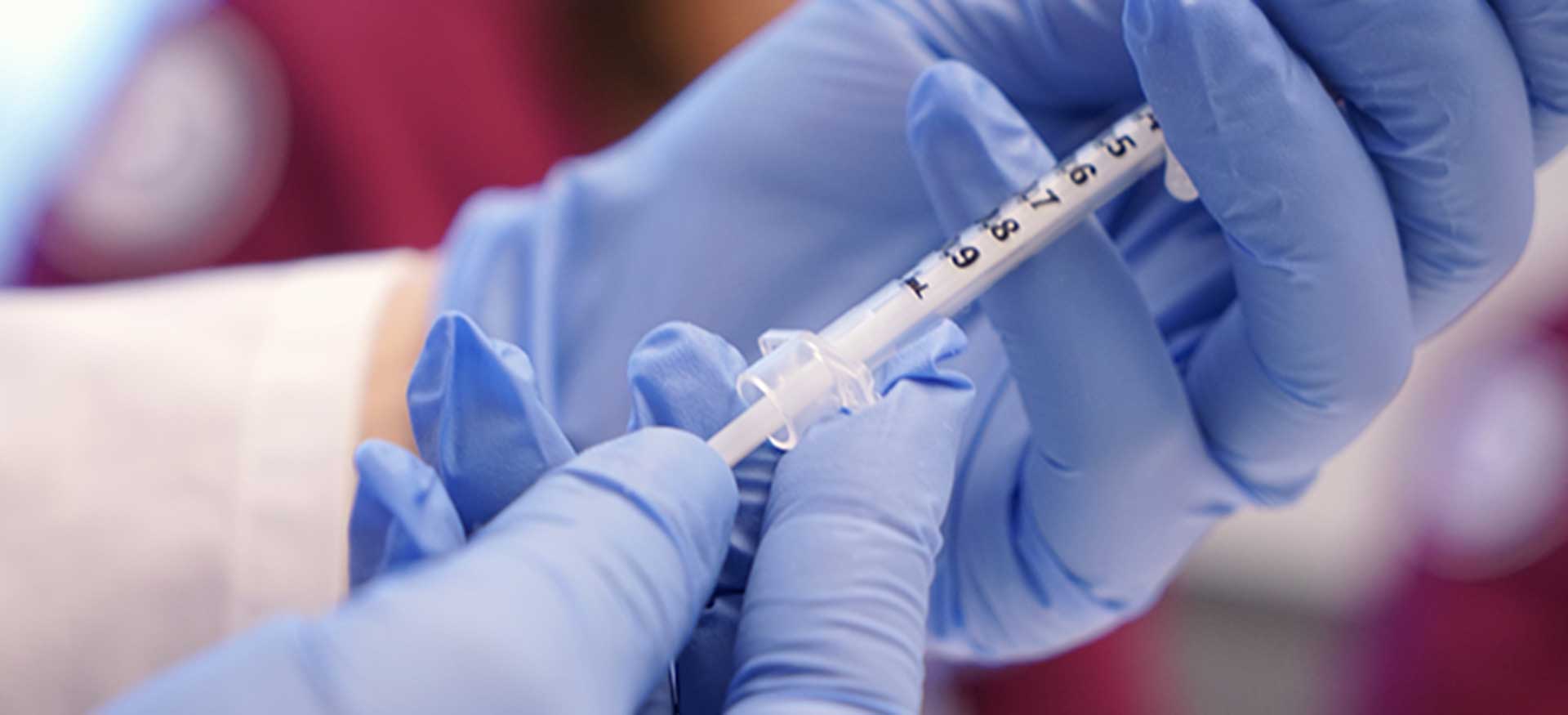Healthcare Simulation Lab
DeSales University is home to some of the most advanced simulation technology in a university setting.
Simulation captures the key characteristics and behaviors of real life clinical events and gives students the opportunity to practice clinical skills, repeat procedures, fine-tune processes, and observe the impact of their choices — all without
harm to patients.

The DeSales family of Human Patient Simulators (HPS)
HPS, also known as high-fidelity manikins, are life-like models of the human body with software/computer equipment components to mimic human bodily functions. The HSC maintains several HPSs, including a pregnant mother and new-born infant.
Clinical Skills Lab
Our clinical skills suite provides both a 12 bed in-patient and a 12 bed out-patient practice environment. Students can practice a wide variety of clinical skills with low fidelity mannequins. Task Trainers help students gain expertise in technical procedures and clinical skills such as foley catheter placement or pelvic examination for undergraduate students and more advanced skills such as central line placement or peripheral IV insertion, for our graduate students.
Standardized Patient Program
This on-campus suite replicates a functioning healthcare office, complete with a waiting room, and 8 fully equipped examination rooms. Standardized Patients are real people who are specially-trained to portray different patient scenarios, where they are treated as real patients by DeSales students. They actively participate in the instruction, practice, and assessment of the physical examination skills of our students, nurses, and physician assistants.
Education Management
Our Education Management Solutions, Inc. system (EMS) provides a comprehensive solution for the labs;. Digital AV software and hardware allow faculty to capture both the simulations and standardized patient environments for further review. The results provide a digital video record of individual and team performance, which assist in evaluating a student’s performance when faced with realistic clinical challenges.




